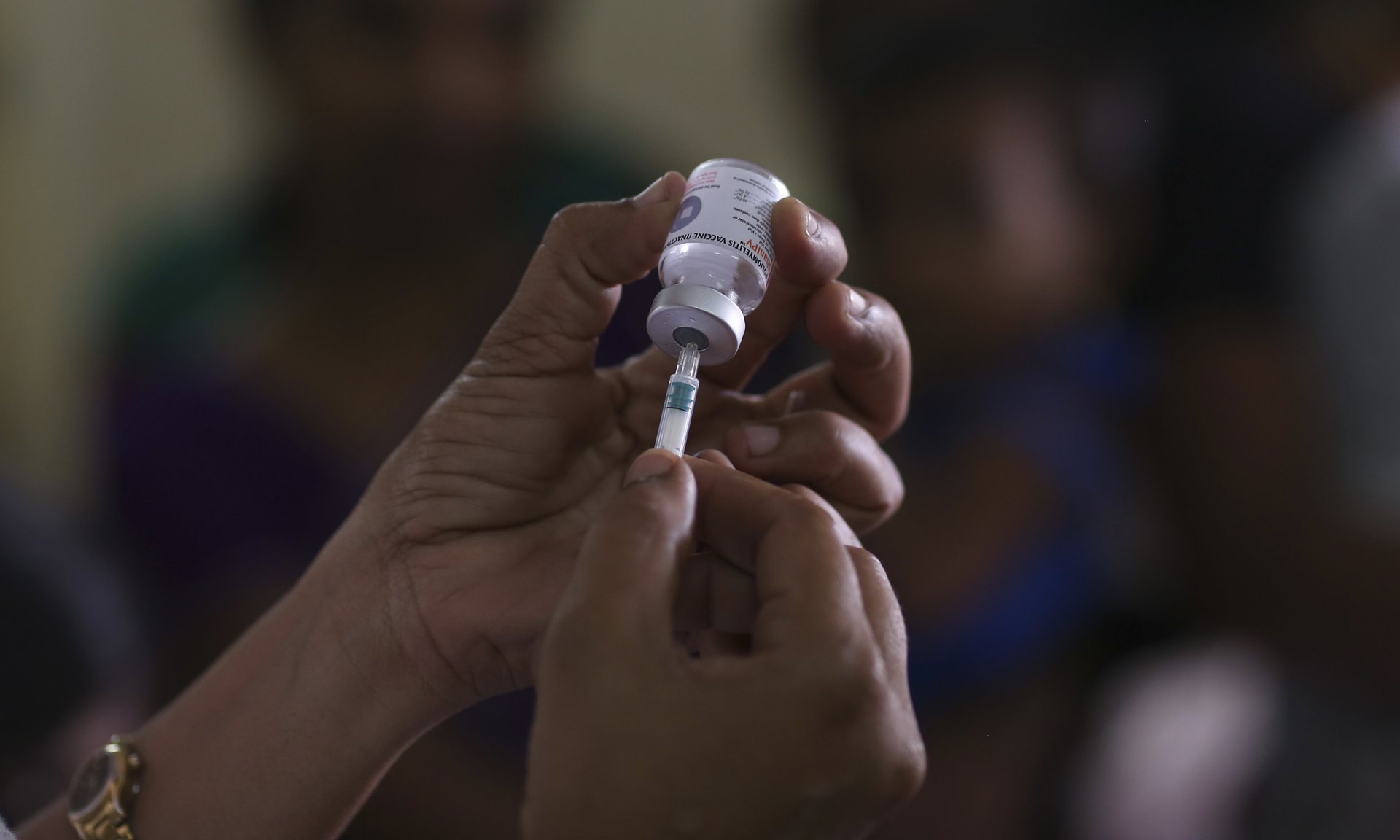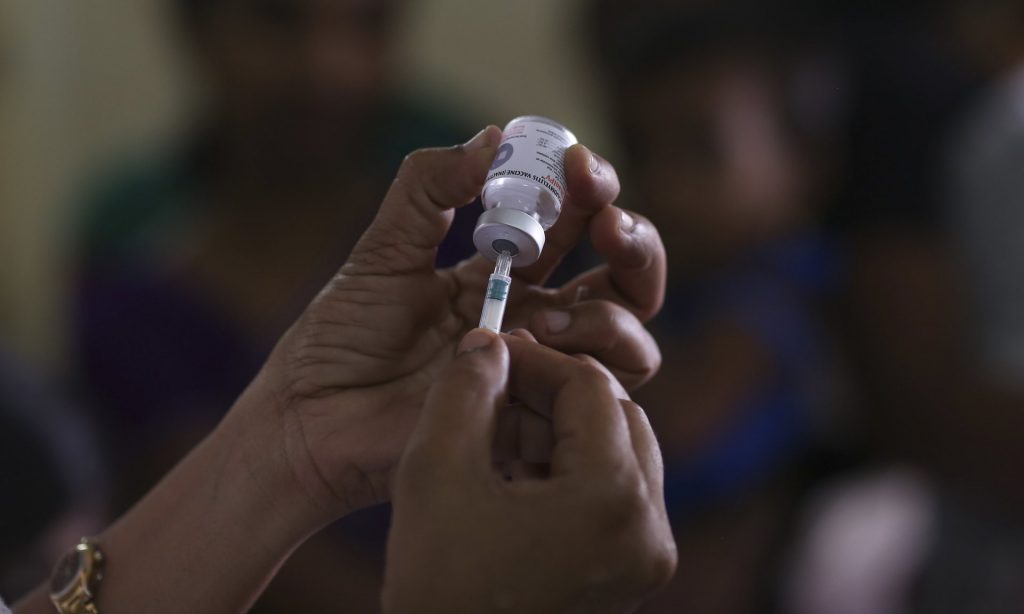The government is set to roll out mass vaccination of girls against cervical cancer in two weeks, even as doctors affiliated to the Catholic Church have contested the move citing a myriad of health complications.
The Ministry of Health will give 10-year-old girls two free doses of the vaccine against the cancer-causing human papillomavirus (HPV), six months apart, at about 9,000 public, private and faith-based facilities countrywide.
FOURTH COMMON
The World Health Organisation (WHO) recommends vaccination of all girls and screening, at least once every year, for older women to reduce cancer risk, and the vaccine is most effective when administered between the ages of nine and 14.
There are about 100 types of HPV, of which at least 14 cause cancer. Two HPV types (16 and 18) cause 70 per cent of cervical cancers and cervical lesions.
The ministry met its partners Tuesday morning in preparation for the HPV national roll-out and to touch base on the local cancer landscape.
“The HPV vaccine is an extraordinary vaccine. It is the most effective means of preventing cervical cancer and is very safe. I am also a father of girls and all of them have received the vaccine. By vaccinating our girls against HPV we are preventing the disease for life. They will be able to grow, live up to their full potential and prosper,” said WHO Kenya Rep Dr Rudi Eggers, during the briefing.
MoH targets to reduce cases of cancer of the cervix — the second most common in Kenya after breast cancer, according to recent statistics released by the International Agency for Research on Cancer.
The disease claims about seven women in Kenya every day, about 3,000 per year, according to statistics from the MoH.
There are about 40,000 new cervical cancer cases annually. Globally, it is the fourth most frequent cancer in women.
SEXUALLY ACTIVE
“It is unfortunate that we lose seven women to cancer every day. This is preventable through vaccination. If you prevent HPV infection then you can prevent cervical cancer,” said the Ministry of Health Head of Immunisation, Dr Collins Tabu, during the stakeholders meeting held Tuesday.
On Tuesday, the Kenya Catholic Doctors Association (KCDA), in a 19-page document, questioned the decision to have 10-year-old girls vaccinated against HPV.
The doctors said their objection to the roll-out of the vaccine was backed by “studies” that indicated that the HPV vaccine was harmful to humans. “At 10 years, our children are not sexually active. They are not at risk of contracting HPV or other STDs. This applies also to other individuals who are not sexually active. It also includes those who are sexually active but faithful to their partners,” said the KCDA chairman, Dr Stephen Karanja, in the statement.
“It, therefore, makes neither logical nor scientific sense to expose children to a vaccine for a sexually transmitted disease that they are not at risk of contracting. These children must be protected by everyone including the government from promiscuity and helped to remain chaste.”
Top health experts, however, termed the claims “sensational and unfounded.” Kenyatta National Hospital’s (KNH) top gynaecologist and surgeon Dr Alfred Mokomba said past clinical researches showed that the vaccine was effective and safe for use on children.
CANCER BURDEN
He said the vaccine was a preventive measure and was cheaper than cancer treatment, and would bring down the local cancer burden.
“The work of a vaccine is to provide cushion before exposure and that is how they work better-because the body builds up a defence against the virus. I have taken my daughters for the vaccination; it is safe. Those opposed have no case at all, they need to come up with better evidence to show the risks,” he said.
“What we know so far is that the vaccine provides 90 per cent defence against cervical cancer. Two researches conducted at the KNH showed that the HPV vaccine was effective in dealing with the HPV types 16 and 18 virus — the common causes of cervical cancer locally,” added Dr Mokomba.
According to the Catholic doctors, the virus, like sexually transmitted diseases (STDs), affected those “whose lifestyle involves irresponsible sexual behaviours”.

They, therefore, recommend that the government should ensure parents are empowered to “protect their children from contamination socially, mentally, spiritually, and physically from a world full of pornography.
“STDs are diseases of behaviour. When people of whatever age respect sexual discipline, chastity, abstinence and faithfulness in marriage, they are not at risk of contracting STDs and other diseases of perversity. These behaviours are the universal pillars of prevention of STDs, not vaccines,” said Dr Karanja. However, Mr David Makumi, the vice-chairman of Non-Communicable Diseases Alliance of Kenya and patron Oncology Nurses (Kenya), said the KCDA’s claims were not backed by facts and that they did not represent every Catholic’s position.
VACCINE MISTRUST
“We have a golden opportunity and if we can fix this then we will have done a great job. We owe it to our children,” said Mr Makumi. Rumours of potential harm from vaccines are not new and continue to spread even as scientists refute the claims. Locally, select groups affiliated to the Catholic Church have in the past opposed polio and tetanus vaccination drives. In all instances, the government has carried on with its plans. However, a number of people fail to take their children for vaccination for fear of the “risks” pointed out by the church — which is an authority — putting others in danger.
Mistrust in vaccines, for instance in America, has led to the worst Measles outbreak in 25 years.
As Kenya targets, girls with the HPV vaccine, countries like Australia are also targeting boys to totally wipe-out the circulation of the cancer-causing virus from its population.
Since HPV is transmitted sexually, vaccinating boys works in reducing its circulation of the virus linked to five per cent of cancers.
It is also a preventive measure for penile, anal and genital cancers and those of the head and neck.
Multiple studies in Australia indicate that the HPV vaccine has proven sufficient in providing protection. Australia’s Cervical Cancer screening programs ambitious plan includes wiping out cervical cancer by 2035.
Cost and access remain the greatest impediments towards early screening and treatment of cancer in Kenya to date.
Screening cost from about Sh3,000. Treatment too is costly with charges ranging Sh172,000 ($1,720) to Sh759,000 ($7,590) to treat cervical cancer without surgery in Kenya and Sh672,000 ($6,720) to Sh1.2 million ($12,500) if an operation is carried out, says the National Cancer Control Programme.

